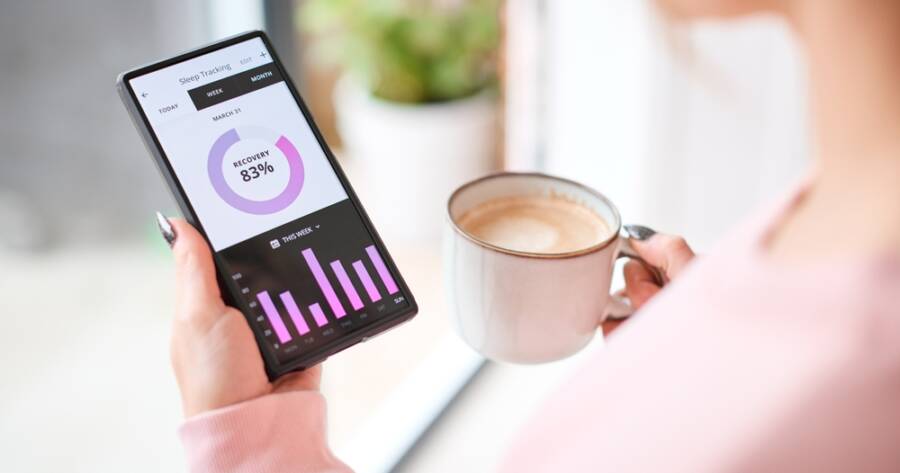As technology promises to optimize every aspect of life, improving sleep has become a new frontier. Sleep trackers and mobile apps now monitor rest patterns, measure sleep quality, and offer insights for healthier habits. Yet, questions remain about their accuracy and effectiveness. While some users benefit from increased awareness and motivation, others find the data confusing or inconsistent. Understanding how innovative tools work—and their limitations—helps determine whether they truly enhance rest or simply add more noise.
How Sleep Trackers Work: From Sensors to Algorithms
Sleep trackers, which are often embedded in wearables or smartwatches, aim to monitor sleep through various sensors and algorithms. Most devices use accelerometers to track body movements and heart rate sensors to estimate different sleep stages, such as light, deep, and REM sleep. Some more advanced models even incorporate oxygen monitoring and skin temperature tracking.
These devices typically sync with a smartphone app, presenting users with a breakdown of their sleep patterns. While the data might seem comprehensive, it’s essential to remember that these readings are estimates. Since most consumer devices don’t have the complex equipment found in a sleep lab (such as EEGs to measure brain activity), their accuracy can vary significantly. Still, for many people, even approximate data can serve as a baseline to recognize trends in sleep behavior and guide improvements.
The Pros and Cons of Wearable Sleep Trackers
Pros: Motivation and Awareness
For individuals who struggle with consistent sleep patterns, trackers can increase awareness and accountability. By seeing nightly sleep data, users may be more inclined to stick to regular sleep schedules, limit late-night screen time, and incorporate relaxation techniques. Some trackers offer “sleep coaching” features, providing reminders and tips to build better habits.
Cons: Potential for Data Anxiety
However, sleep tracking isn’t without its downsides. For some, tracking sleep may lead to stress, especially if they feel pressured to “achieve” a certain amount of deep or REM sleep each night. Known as orthosomnia, this anxiety around obtaining “perfect” sleep can ironically worsen sleep quality. Since not every night’s sleep needs to fit a specific mold, experts suggest taking data as an approximation rather than an absolute measure of sleep health.
Apps and Their Role in Sleep Improvement
Beyond wearable trackers, sleep improvement apps are another popular option. Ranging from meditation and relaxation guides to soundscapes and smart alarms, these apps offer various tools that can help users unwind and fall asleep more easily. Many apps feature guided breathing exercises, progressive muscle relaxation, or bedtime stories that may help reduce stress.
Apps with soundscapes or “white noise” generators may be particularly useful for light sleepers or people in noisy environments. White noise, pink noise, and even ocean sounds can mask disruptive background sounds, potentially helping users stay asleep longer. However, responses to these sounds vary widely, and some people find they disrupt sleep rather than support it.
Can Sleep Tech Really Improve Sleep Quality?
While sleep tech can provide insights and potentially helpful tools, its impact on actual sleep quality is not definitive. The data that wearables and apps provide can serve as a guide, but interpreting this data can be tricky. Since sleep involves complex physiological and neurological processes, making any direct correlation between wearable data and actual sleep quality is challenging.
In some cases, behavioral changes inspired by sleep tech, such as sticking to a regular bedtime or creating a calming nighttime environment, may lead to better sleep quality. However, results will vary from person to person. For those with underlying sleep disorders like insomnia or sleep apnea, experts often recommend consulting with healthcare providers, as these conditions may require more specific interventions than consumer technology alone can offer.
Sleep Trackers vs. Professional Sleep Studies: Understanding the Limitations
For individuals seeking to improve their sleep, it’s important to recognize the distinction between consumer sleep tech and professional sleep studies, known as polysomnography. In a clinical setting, polysomnography uses various measurements to provide a highly detailed understanding of an individual’s sleep architecture. It monitors brain activity, muscle movement, eye movement, and more to diagnose sleep disorders accurately.
Consumer devices, in contrast, don’t measure brain activity directly. This means that while they can estimate sleep stages, these estimates are not as precise as those from a sleep study. If users are experiencing significant sleep issues or symptoms like excessive daytime drowsiness, snoring, or difficulty breathing at night, wearable data should not replace professional evaluation and advice.
A Complement, Not a Cure
Sleep technology offers a range of tools that may support better sleep habits and provide insights into individual sleep patterns. For many, using a sleep tracker or app can be an excellent way to stay motivated and informed.
However, these devices have limitations, and the data they provide should be interpreted with caution. For those facing persistent sleep issues or possible sleep disorders, professional help is always recommended. Ultimately, sleep tech can be a helpful complement to healthy sleep habits, but it’s not a substitute for quality rest or expert care.
